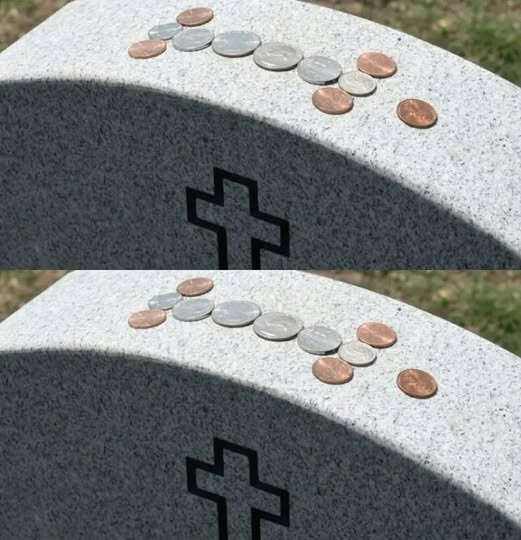In U.S. military cemeteries, the type of coin left on a headstone carries a specific meaning:
- Penny (1¢) – A general sign of respect, often left by visitors to show they’ve paid their respects.
- Nickel (5¢) – Indicates the visitor trained at boot camp with the deceased.
- Dime (10¢) – Means the visitor served with the soldier in some capacity.
- Quarter (25¢) – A powerful message: the visitor was present when the soldier died.
Other Meanings:
- Coins placed upright (like standing on edge) may symbolize active remembrance.
- Foreign coins can signify that the visitor came from afar to pay tribute.
Why People Still Leave Coins Today
- To Honor the Dead – A silent yet meaningful gesture of respect.
- For Military Families – Some believe it helps their loved ones “know” they were visited.
- Charity & Maintenance – In some cemeteries, collected coins fund veteran services or grave upkeep.
Modern Variations & Customs
- Jewish Tradition – Small stones are often placed instead of coins, symbolizing permanence.
- Non-Military Graves – Some leave coins on civilian graves as a simple memorial.
Final Thoughts
A coin on a gravestone is more than just spare change—it’s a quiet, powerful tribute to those who have passed. Next time you see one, you’ll understand the deep respect behind it.
ADVERTISEMENT

